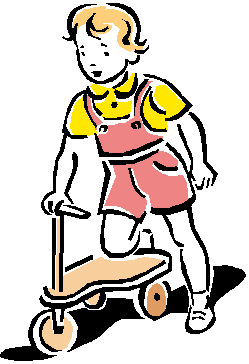
My instructional philosophy has evolved over a 20-year teaching career at the university level. Experience has been the best teacher and my students past and present should take the credit for any positive changes in my approach. In addition, I have been greatly aided in my quest to improve the whole learning experience through participation in four specific programs:
The University of Prince Edward Island Faculty Development Summer Institute (1993)
The Environmental Literacy Institute at Tufts University (1995)
The Leadership for Environment and Development Program (1996-98)
The Problem-Based Learning Course at the University of Delaware's Institute for Transforming Undergraduate Education (2001)
Today my guiding principles for teaching are best captured in the extracts from the following:
A Chinese Proverb on Education as interpreted by Ei-Ichiro Ochiai, J. Chem Educ. 70:44 (1993);
Robert Fulghum's submission to the Kansas City Times, 17 September 1986; and
"Ten Ways to Change Undergraduate Education" - the Boyer Commission Report of 1998.
A Chinese Proverb on Education
Tell me, I will forget
All
I Really Needed to Know, I Learned in Kindergarten...

Most of what I really need to know about how to live, and what to do, and how to be I learned in kindergarten. Wisdom was not at the top of the graduate-school mountain but there in the sandbox.
These are the things I learned: Share everything. Play fair. Don't hit people. Put things back where you found them. Clean up your own mess. Don't take things that aren't yours. Say you're sorry when you hurt somebody.
Wash your hands before you eat. Live a balanced life. Learn some and think some, and draw and sing and dance and play and work every day some.
Take a nap in the afternoon. When you go out into the world, watch for traffic, hold hands and stick together. Be aware of wonder. Remember the little seed in the plastic cup. The roots go down and the plant goes up, and nobody really knows why, but we are all like that.
Goldfish and hamsters and white mice and even the little seed in the plastic cup - they all die. So do we.
And then remember the book about Dick and Jane and the first word you learned, the biggest word of all: look. Everything you need to know is in there somewhere. The golden rule and basic sanitation, ecology and politics and sane living.
Think of what a better world it would be if we all had cookies and milk about three o'clock every afternoon and then lay down with our blankets for a nap. Or if we had a basic policy in our nation and other nations always to put things back where we found them and cleaned up our own messes. And it is still true, no matter how old you are, when you go out into the world, it is best to hold hands and stick together.
 |
Ten Ways to Change Undergraduate Education (The Boyer Commission Report 1998)
I. Make Research-Based Learning the Standard II. Construct an Inquiry-Based Freshman Year III. Build on the Freshman Foundation V. Link Communication Skills and Course Work VI. Use Information Technology Creatively VII. Culminate with a Capstone Experience VIII. Educate Graduate Students as Apprentice Teachers IX. Change Faculty Reward Systems X. Cultivate a Sense of Community |
 |